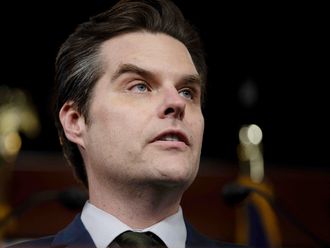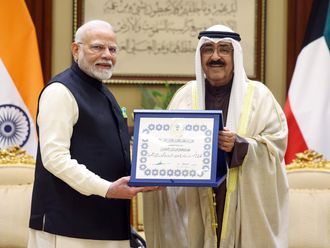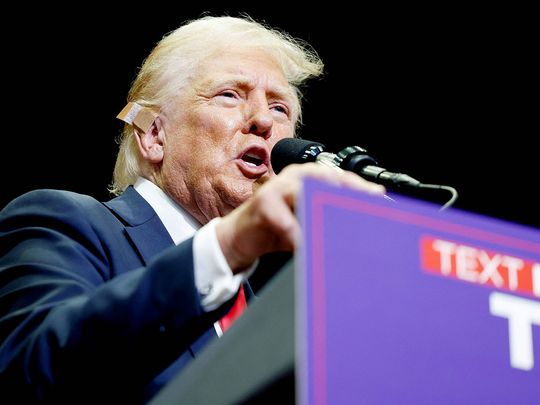
Washigton: The sudden elevation of Vice-President Kamala Harris as the Democratic front-runner injects fresh uncertainty into the US election for world leaders already grappling with the implications of Donald Trump’s potential return to the presidency.
It’s a measure of the foreboding over Trump that most foreign officials who spoke to Bloomberg viewed President Joe Biden’s exit from the race in terms of whether it improved the chances of defeating the Republican challenger. With varying degrees of frankness, they pinned hopes on Harris overtaking Trump in November’s election to become the US’s first woman president.
Biden’s decision on Sunday to end his reelection campaign drew a line under the long-running drama over his physical and mental frailty. While polls suggest Harris may be marginally better placed to challenge Trump, that doesn’t alter the basic strategic calculation for governments around the world; they need to be ready for a second Trump term.
Most European governments are quietly looking to cultivate relations with Republicans to ensure they have a line in to a potential Trump White House, according to two officials with knowledge of the situation.
Also read
“We have to be ready for both scenarios,” Czech Foreign Minister Jan Lipavsky said. “We cannot have wishful thinking that one candidate is better than other.”
Harris’s new status as the likely Democratic nominee prompts two key questions for allies and adversaries alike. Can she win? And how much would President Harris’s foreign policy differ from Biden’s?
The outcome of multiple geopolitical challenges will be shaped by the answers, from Ukraine’s fight against Russia and Israel’s war with Hamas in Gaza to the future of European security, US relations with China and the contest for influence with the Global South.
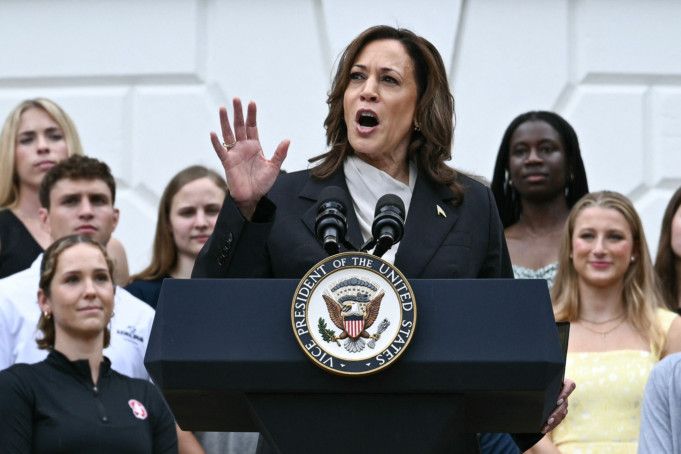
Will there be the continuation of Biden’s line?
“From Poland’s point of view, the most important will be the position of the new Democratic candidate on Nato, on the defence of Poland and the support for Ukraine,” Polish Interior Minister Tomasz Siemoniak, a close ally of Prime Minister Donald Tusk, told Bloomberg by message. “Will there be the continuation of Biden’s line?”
Harris set out a vision at the Munich Security Conference in February “- her third visit to Europe’s biggest annual foreign-policy gathering — where she argued that US engagement in global affairs helps to make Americans safer and supports the US economy, contrasting that philosophy with Trump’s isolationism.
“We are committed to pursue global engagement, to uphold international rules and norms, to defend democratic values at home and abroad, and to work with our allies and partners in pursuit of shared goals,” she said.
“Our approach is not based on the virtues of charity. We pursue our approach because it is in our strategic interest.”
Some who have dealt with Harris directly said she has a sound grasp of the issues, though it’s difficult to gauge her true convictions because the Biden White House didn’t really give her much space on foreign policy.
Officials who spoke on condition of anonymity were unsure to what extent she was articulating her own world view or that of Biden.
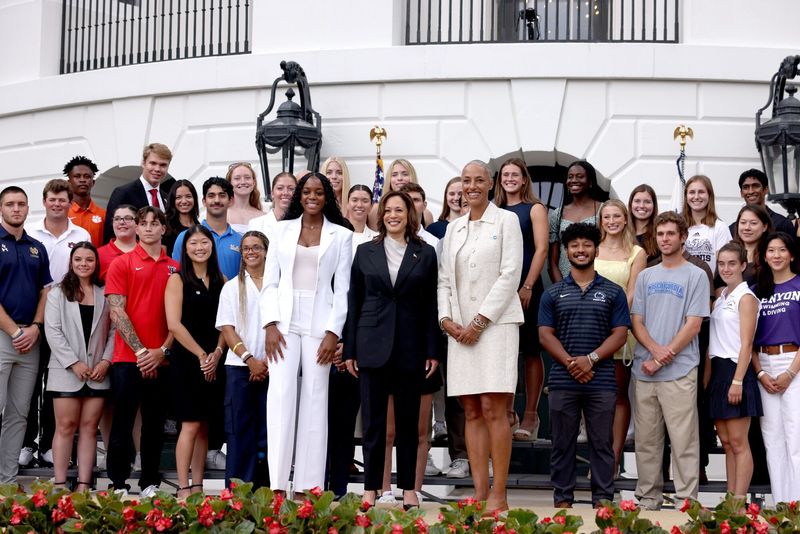
Others were more critical, saying 59-year-old Harris lacked the knowledge and gravitas of Biden, who focused for much of a 36-year career in the Senate on international issues and chaired its foreign relations committee.
In Switzerland, where Harris stood in for Biden at last month’s Ukraine summit, she gave a scripted speech condemning the Russian attacks and left White House National Security Advisor Jake Sullivan to talk to reporters.
Still, one official pointed out that her national security adviser, Philip Gordon, has a deep understanding of Europe and suggested that connection was encouraging. Gordon served as Assistant Secretary of State for European and Eurasian Affairs under President Barack Obama and met with Ukrainian President Volodymyr Zelenskiy’s chief of staff, Andriy Yermak, this month.
Deeply engaged in the world
Republican Senator Jerry Moran of Kansas said he expects the US will remain deeply engaged in the world no matter who wins the presidential election.
“I don’t expect America to walk away from the world in any administration,” he said in an interview with Bloomberg TV’s Guy Johnson from the Farnborough International Airshow in the UK. He added that he expected aid to Ukraine would also continue either way.
“I think there’s a path forward in Ukraine for success, for a victory,” he said. “I think it’s important for us to continue to pursue this cause.”
Russian President Vladimir Putin’s spokesman, Dmitry Peskov, told reporters Monday the Kremlin couldn’t evaluate Harris’s potential impact on bilateral ties “because so far her contribution to our relations hasn’t been noticed.”
Brazilian President Luiz Inacio Lula da Silva is sympathetic to Harris and thinks she has time to overtake Trump by November, according to two of his foreign affairs advisors. Lula believes it’s important for the Democratic Party to formalize her candidacy and rally around her, and that Harris may do better with women voters than Hillary Clinton did in 2016, the people said, requesting anonymity to discuss the president’s thinking.
‘Only bad guys want Trump to win’
One eastern European official said most Europeans are rooting for Harris. Only the ‘bad guys’ want to see Trump win, the person said.
Harris has been an active presence in the Asia-Pacific region, despite one notorious gaffe when she mixed up North Korea and South Korea on a visit to the demilitarized zone that separates the two countries.
She had lunch with South Korean President Yoon Suk Yeol when he visited the US in April last year and the pair also visited NASA’s Goddard Space Flight Center in Maryland.
Officials in Tokyo are optimistic that a President Harris would cement ties with Japan, one official said. Harris has already formed a strong rapport with her Japanese counterparts, the official said, and her US West Coast background gives her a good understanding of the region.
Washington’s foreign-policy establishment — under both Democratic and Republican presidents — has been trying to shift the US’s focus away from Europe toward Asia and the challenge of China for more than a decade. European officials see that trend continuing.
On the sidelines of the North Atlantic Treaty Organisation summit in Washington earlier this month, one official lamented that the next US leader, whether it’s Trump or a Democrat, is unlikely to match Biden’s commitment to the Transatlantic relationship.
That’s a message German Foreign Minister Annalena Baerbock has already assimilated.
“No matter what the outcome of the election will be, it’s clear that Europe must invest more in its own security and must become stronger,” Baerbock said Monday as she arrived at a meeting of EU foreign ministers in Brussels.


